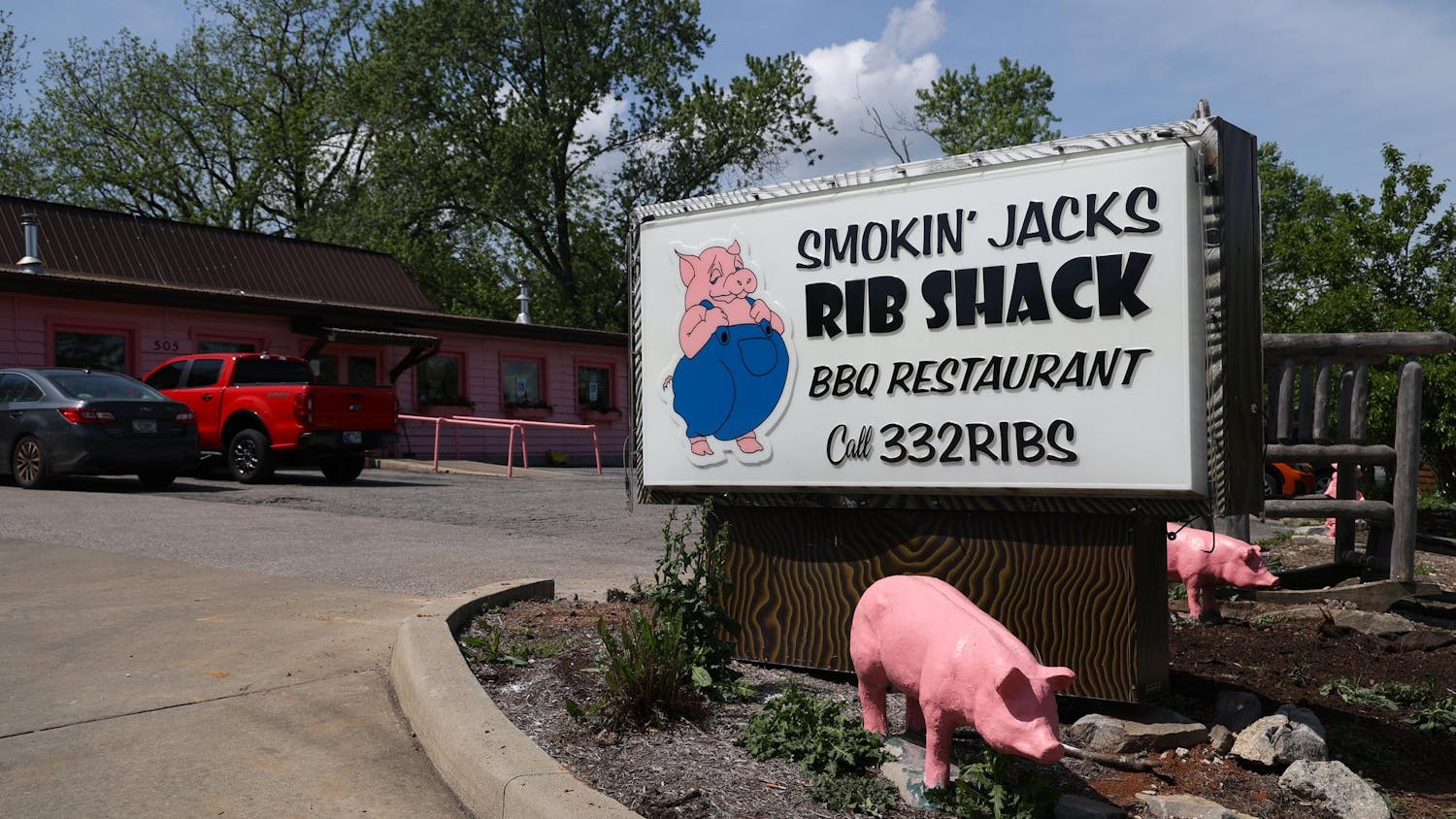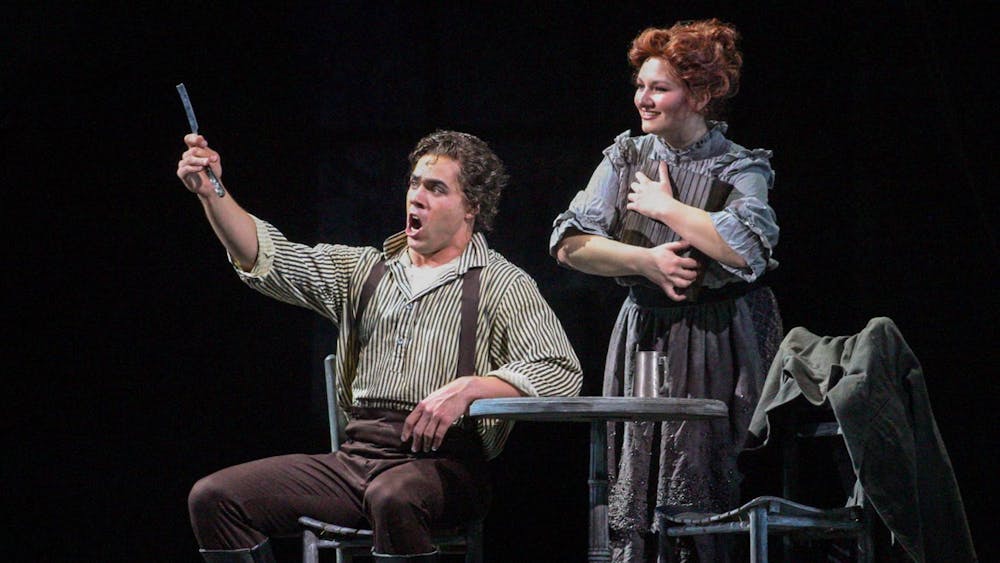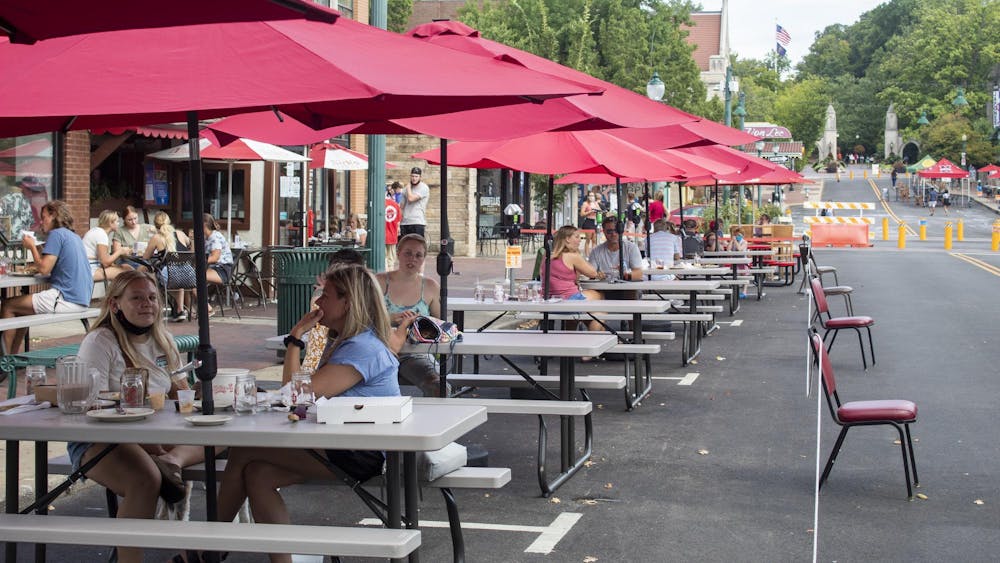Every day, those of us living in the city take an hour-long bus ride to campus in the suburb of New Cairo.
Our bus driver honks incessantly, as do all the drivers.
Eventually, we cross a bridge over the Nile, along with a stream of cars.
After that bridge, we drive through the slums.
It’s poverty like I’ve never seen. The houses here are tall but are made from what looks like mud and brick. Kids pick through mountains of trash.
American University in Cairo is very wealthy. It’s sometimes easy to forget the fact that we are living in a place that is classified as a third-world or developing country, but it’s starting to show.
Last week there was a major water shortage. Water was shut off to our campus for several days, meaning no drinking water or toilet water. Even bottled water is scarce in some areas.
A few days ago, we went to Giza to see the pyramids.
Horses and donkeys pulled carts of produce or textiles. One man led a camel across a fast-paced street amid honks and shouts in Arabic. Women in niqabs walked toward shops or side roads, dragging children along behind them.
The pyramids were beautiful and bigger than any of us could have envisioned. We saw the sphinx and took pictures next to camels or sitting on pyramid blocks.
But what I noticed most were the people at the base — the vendors.
Street children here are common. They are often without birth certificates or parents, living on the streets by begging or selling souvenirs to tourists.
At the pyramids, very young children had learned enough English to hold plastic pyramids or postcards and say, “$1? $1?”
We always said no. One boy, jokingly, grinned and held up a post card and said, “One million dollar?”
It’s also easy to forget that Cairo can be dangerous.
Last week, I took a survival Arabic course. Our teacher was friendly and middle-aged, a mother and wife. Often between Arabic lessons, talk of culture would surface. She repeated herself, telling us one thing.
“It is a different Egypt now.”
She means it’s different because of the revolution.
Jan. 25 and 28 are dates that need no explanation here, the two most important days of the revolution last year.
Many Egyptians know people who died for Egypt during the riots, and they all have stories from living when former Egyptian president Hosni Mubarak ruled.
But many Egyptians aren’t happy with the Egypt that has grown out of the revolution, at least not in the short term.
It’s more dangerous now. Street violence never used to be an issue, and now it is. Women are touched or pinched in daylight on the street. Police don’t respond to calls. The politicians aren’t of the caliber most Egyptians hoped for.
Egypt is a nation with seemingly insurmountable problems. But when Egyptians look to the government, there’s something I haven’t seen in America in a long time: hope.
Things aren’t great now, but the people have hope that the government and President Mohamed Morsi will work to make it better. Egyptians’ love of their country trumps its troubles.
It’s refreshing to see, coming from a country so cynical and tired as America, since the United States has entered election season. In a lot of ways, we’ve lost hope in our government.
I don’t know how Egyptians manage such hope for change after facing not just years but centuries of oppression by various groups or leaders, but they do.
To me, that’s pretty amazing.
Discovering a new Egypt
Get stories like this in your inbox
Subscribe





